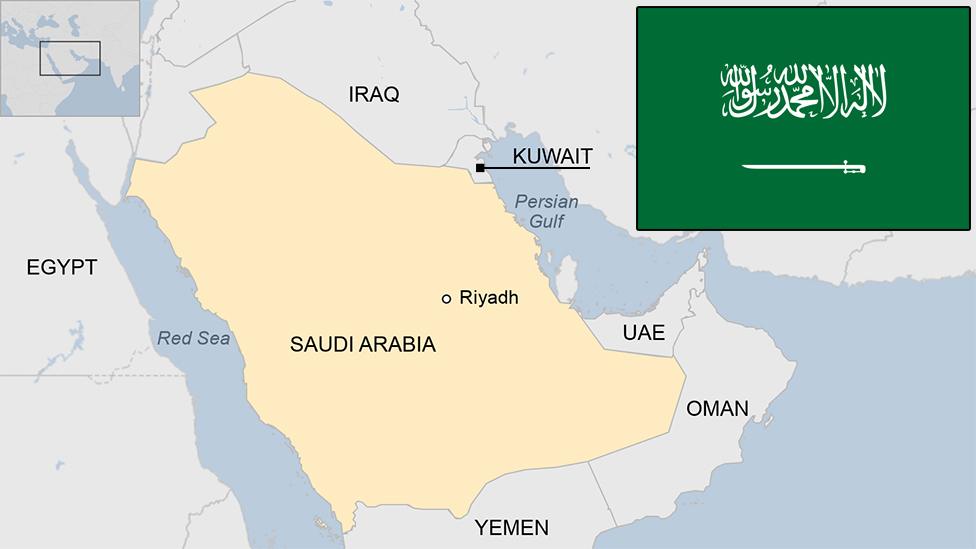US 'not disengaging from Middle East'
- Published
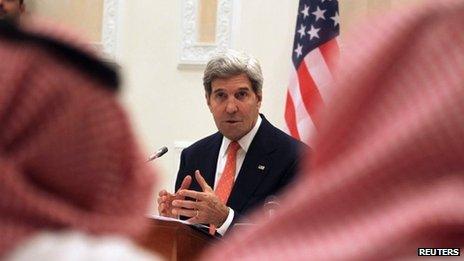
Secretary of State John Kerry has sought to reassure US allies in the Gulf
A senior US state department official has strongly denied suggestions that Washington is looking to disengage itself from the Middle East, and insists it is not abandoning its longstanding Arab allies for the sake of a nuclear deal with Iran.
Speaking at a press briefing inside the US embassy in London, the official, who asked not to be named, said Middle East affairs still took up well over half US Secretary of State John Kerry's time.
In an unusually frank explanation of the challenges facing US policies in the region, the official gave a rundown of Washington's position on a number of key countries.
They also revealed that, in preparation for next month's proposed Geneva II conference on ending the conflict in Syria, delegates representing the warring parties were currently being trained in Switzerland on "how to conduct negotiations".
Syria 'getting worse'
The US official said that whoever goes to Geneva on 22 January to negotiate with President Bashar al-Assad's government must genuinely represent the armed groups fighting inside Syria.
But they added that the situation had been made vastly more complicated in the last two weeks by the takeover of warehouses belonging to the Western-backed Free Syrian Army by fighters from a new Islamist rebel alliance, the Islamic Front.
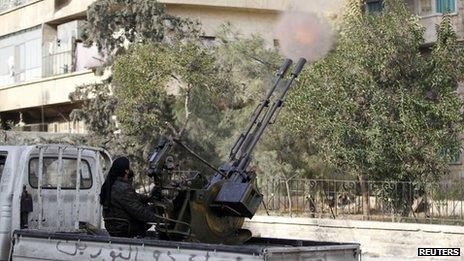
Many of Syria's rebels do not recognise the Western-backed opposition alliance
"The key remains the removal of Assad," said the official, before adding that "everyone agrees the situation in Syria is getting worse".
"The challenge is to come up with a replacement for Assad that does not include al-Qaeda. It will take serious Russian pressure [to make him go]."
Turning to Washington's decision not to attack Assad's forces following the deadly chemical weapon attack outside Damascus in August, the state department official said: "There was a misapprehension amongst our allies that if the US had carried out the missile strike then we would no longer be talking about Assad."
But this was never going to be a regime-changing attack, the official explained, just a limited, punitive strike.
The Syrian opposition, acknowledged the official, could not understand why, if the Russians could persuade President Assad to abandon his chemical arsenal, they could not persuade him to leave power altogether.
Saudis 'not going rogue'
On Iran, the US official stressed that last month's agreement with world powers was "just an initial step to rolling back the key elements" of its nuclear programme.
"Sanctions relief is reversible. It is not about freezing the programme - it is about making sure it is impossible for Iran to build a nuclear weapon."
Washington was well aware that its Gulf allies, notably Saudi Arabia, were upset at being kept out of the loop on the discussions held with Iran in Oman before the nuclear deal was reached but, the officials said, the only way for those talks to succeed was to keep them a secret.
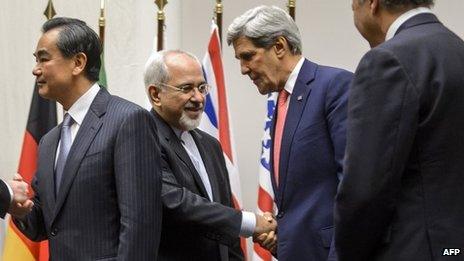
Secret talks between the US and Iran preceded the Geneva nuclear deal
The US had since held talks with its Arab allies to convince them that the US was not "abandoning the Gulf to Persian dominance", and told them the outcome of the Iran talks was "in your interests", the official added.
The voicing and leaking of recent Saudi complaints about US policy were addressed at a recent meeting between Mr Kerry and King Abdullah, they said. The Saudi monarch was reassured and told the secretary of state: "The kind of complaint you hear in public does not come from me."
Co-operation between Washington and Riyadh was so deep on so many issues, the official said, that "we do not see the Saudis going rogue", such as by acquiring nuclear weapons from Pakistan to protect themselves from Iran, as some reports have claimed.
The state department, the official revealed, was separately "convinced" that Iran was playing a negative, destructive role in Yemen's internal affairs, and was concerned over the negative interference by the country's former longtime president, Ali Abdullah Saleh.
The official also said Washington had no plans to end its controversial policy of carrying out strikes by unmanned drones on suspected al-Qaeda militants in Yemen.
But, they added, it was also not intending to deploy US special forces on the ground in a combat role. Instead, they would continue their current training and mentoring of Yemeni troops.
- Published21 October 2013
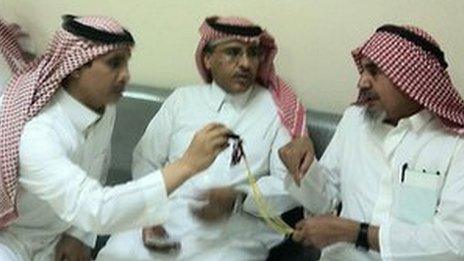
- Published18 October 2013
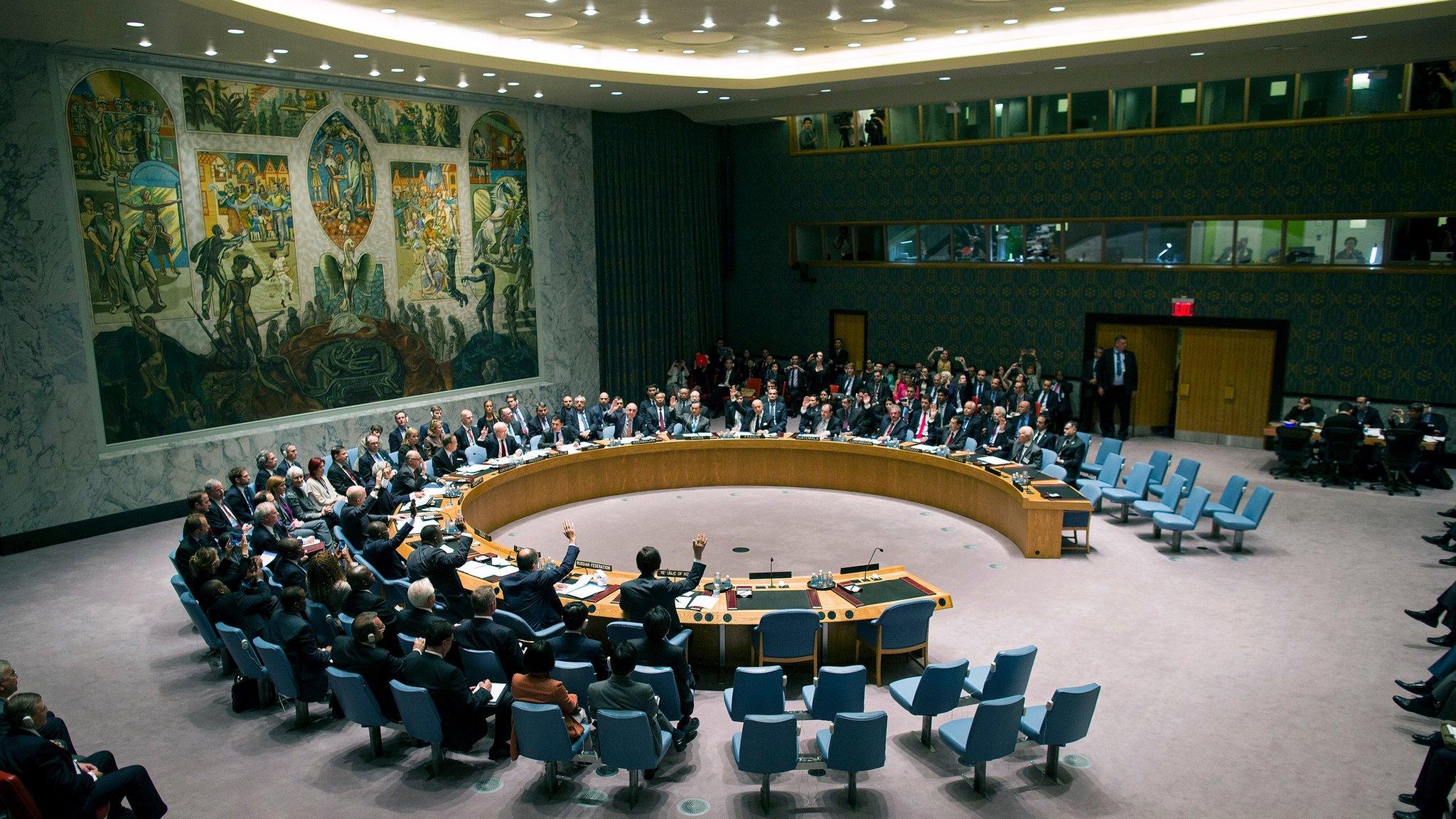
- Published7 April 2013
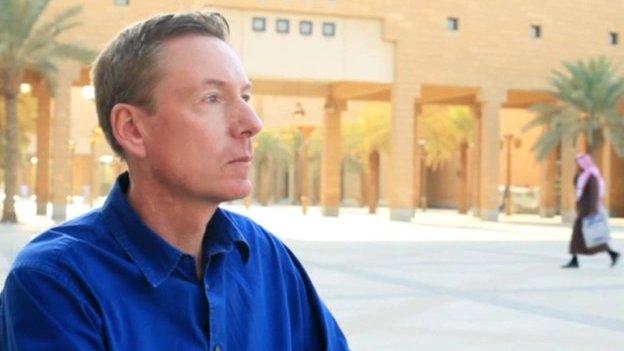
- Published29 August 2023
